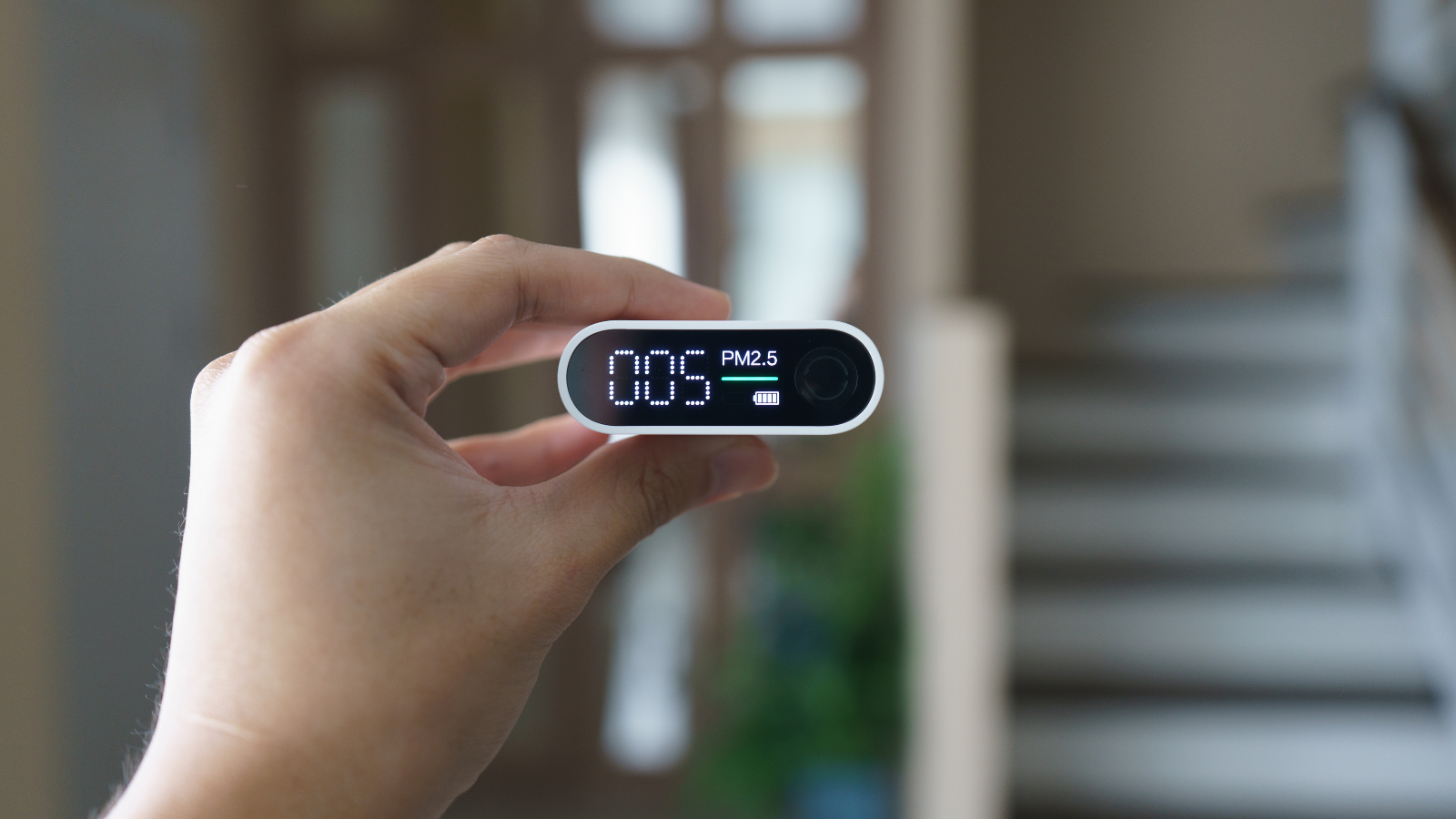
Poor indoor air quality impacts everyone, but especially our community; people with respiratory diseases and other underlying health conditions including allergy. EFA was a guest speaker at a policy event on Indoor Air Quality organised by the ventilation industry association (EVIA), where we brought to the table the perspective of patients with chronic respiratory conditions.
Europeans spend 90% of their time indoors. But did you know that indoor air can be 2-5 times, even up to 100 times, more polluted than outdoor air?
On 15 February, EFA was invited to participate in the policy event ‘Breath of Change – Elevating Indoor Air Quality in European politics’, organised by the European Ventilation Industry Association (EVIA) in Brussels.
The panel discussion gathered an interesting line-up of speakers, including representatives from the European Commission’s Directorate General for Energy (leading the revision of the EU Energy Performance of Buildings Directive (EPBD), which includes provisions for ventilation indoors), regional authorities, technical ventilation experts, as well as the ventilation industry and EFA.
Why indoor air quality is important in Europe
The quality of the air we breathe indoors defines our lung health and general health status. EFA brought the perspective of vulnerable groups such as chronic respiratory and allergy patients into the expert debate about IAQ. We highlighted what can the EU do to improve the air quality indoors and the role of ventilation mechanisms and technologies.
In the discussion, EFA emphasised the role of IAQ as a health determinant, and therefore the fundamental need to ensure healthy air in indoor spaces. Indoor environments are often polluted with harmful substances for health which altogether also might lead to a cocktail effect composed of allergens, mould, dust, chemicals from cleaning products, emissions from heating/cooking and construction materials, furniture or tobacco smoke.
The presence of harmful particles, polluting volatile and agents affects disproportionately certain vulnerable groups such as children and patients with chronic respiratory conditions and allergy. What’s more, there are strong socioeconomic links around poor IAQ, as low-income households usually cannot have access to clean energy sources and ventilation.
EFA’s contribution to cleaner air indoors
Since our creation in 1991, EFA has worked across the policy spectrum advocating for improved IAQ at the EU/Europe levels. We are vocal in calling for better access to information on indoor pollution levels, healthy requirements for construction products, and more ventilation-oriented financing of renovations.
EFA works on IAQ also in the context of the SynAir-G project, which is part of a larger cluster of EU-funded research projects known as the IDEAL Cluster. SynAir-G aims to improve understanding of the main sources and interactions of chemical and biological indoor air pollutants in schools, to develop user- and environmentally friendly solutions and interventions with a particular focus on vulnerable populations, and disseminate the generated knowledge and interventions to key stakeholders. where further synergies will be identified. More information about the SynAir-G project here.
Ventilation also plays an important role to IAQ. EFA has been consistently asking for a legal, science-based definition for ventilation, but also for better information on ventilation rates indoors, through the adoption of indicators that are communicated to the public in indoor space categories, such as schools and malls.
EFA Community considers the role of the EU in enabling action on IAQ as key, and works continuously to ensure IAQ issues affecting patients are listened to, ultimately calling for policy change addressing air quality indoors.
Download the full EFA presentation at the EVIA event here.